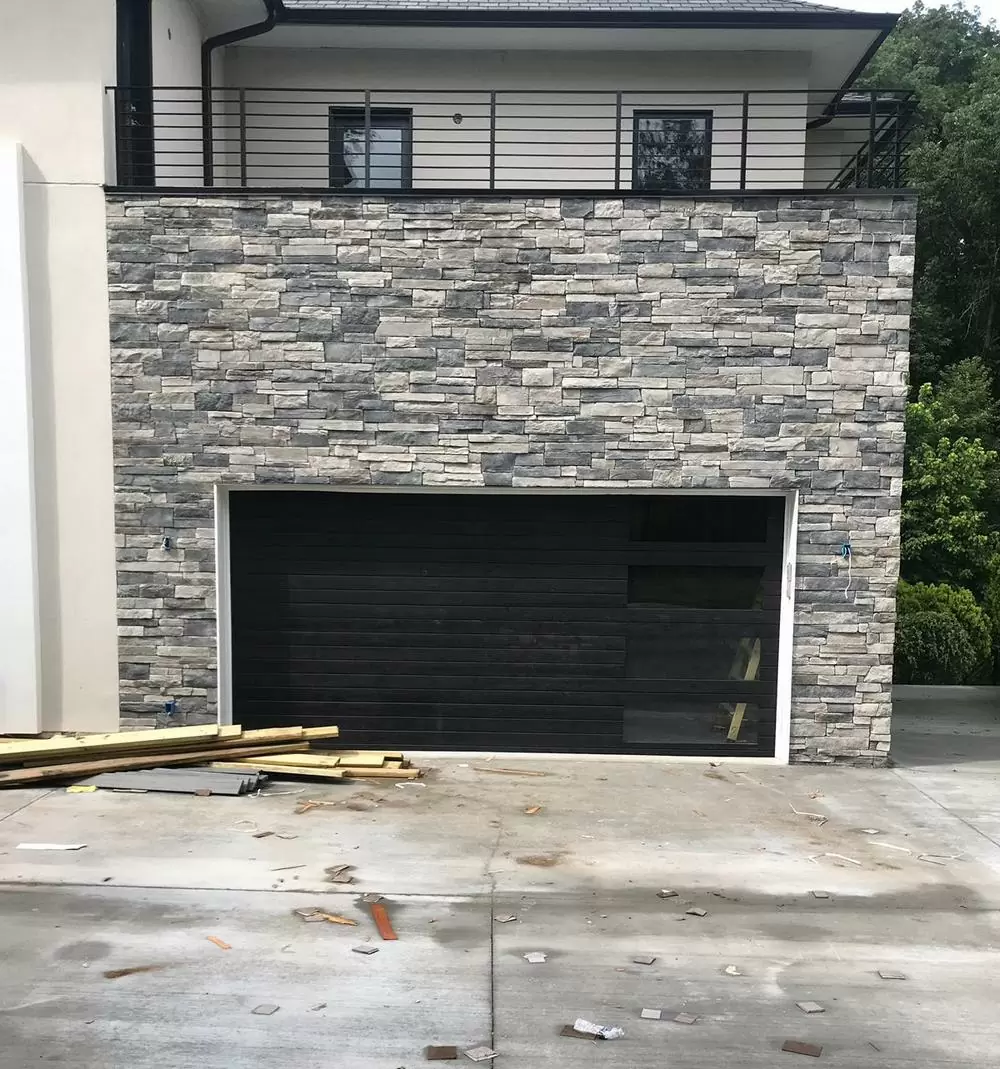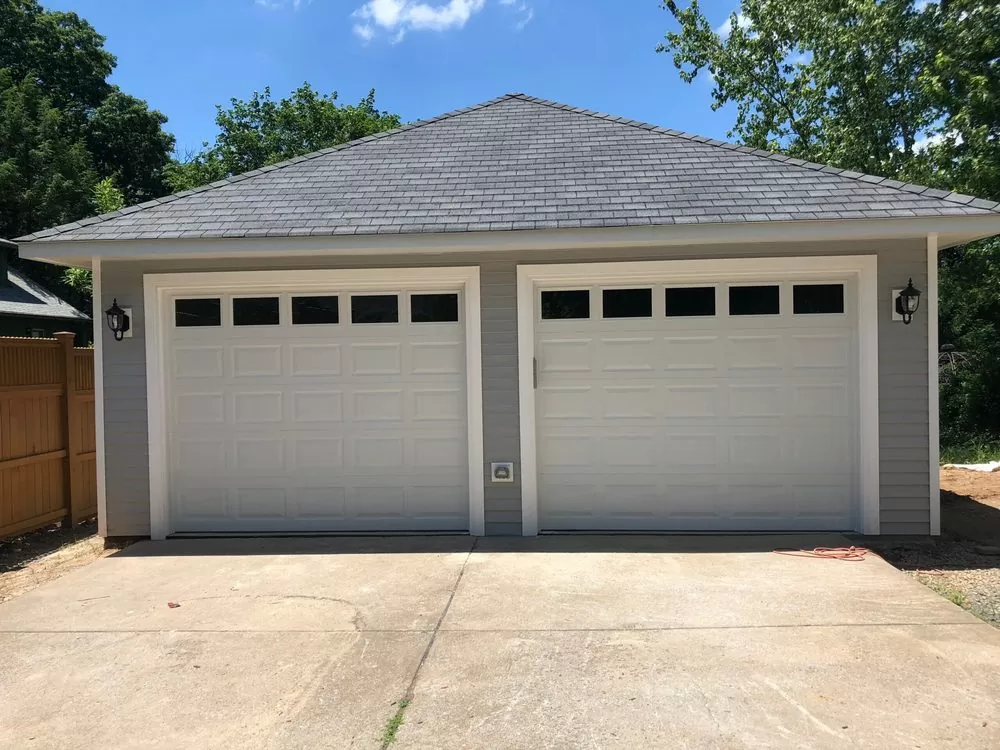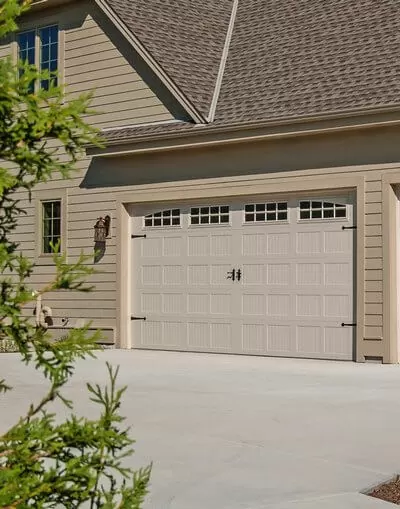Table of Contents
Have you recently noticed any cracks or discolorations on your garage floor? When winter comes, it is time to talk about garage door issues in cold weather. The owners can face a lot of trifles during this period. Temperature fluctuations are very harmful to a concrete surface and cause many problems. Moreover, the winter is approaching, and road salt is going to damage not only your new leather shoes but your garage floor as well.
How does road salt damage your floor? Road salt is a liquid brine that gets inside your floor. After losing its effectiveness, it freezes easily, thus cracking your floor. And, of course, let’s not forget about humidity, fog, and mud that leave stains and lead to concrete spalling. Fortunately, there is a number of ways to prevent the damage and provide the ultimate garage floor winter protection.
Polyaspartic Garage Floor Protection
Garage Door Service
If you are looking for long-term quality and aren’t afraid to pay extra, polyaspartic floor coating is the best choice. Polyaspartic is a hybrid material that provides a clear and glossy finish for your coating. On top of that, this material leaves you room for decoration as you can add color to the mix and create a great design. To avoid the slippery floor, some choose to include decorative chips and spread it across the surface.
This type of protection accommodates long-lasting floor coating by penetrating the deepest layers of concrete. This is why polyaspartic flooring is resistant to liquids, chemicals, and marks left on the floor by tires or shoes.
The advantages of polyaspartic protection
Polyaspartic coating can be installed at any time due to its temperature indifference. From -30F (-34C) all the way to 140F (60C), this material can be applied during the hottest summer times and the coldest winter weather.
Polyaspartic garage floor protection dries fast, really fast. It can be both a benefit and a drawback. The benefits of quick drying time are apparent: you can apply both layers — the primer and the clear coat — in one day and use the garage space at full capacity immediately thereafter. The downside is that you need to plan before starting the application because the material can easily dry right in your bucket. So, if you are not a professional, it is highly recommended to refer to experts and pay extra for the labor. In this case, it is crucially important because you might end up wasting money on materials without achieving any results.
Polyaspartic coating is 100% UV-resistant and won’t turn yellowish after being exposed to the sunlight. Moreover, it is also heat-resistant and won’t reveal any damages due to hot tires.
Finally, polyaspartic coating is no VOCs (Volatile organic compounds) and no odor, which means you can breathe freely during the application and further use.
The disadvantages of polyaspartic protection
First, this type of material is the most expensive one on the menu. Second, the application of polyaspartic is very tricky, which means that the overall cost will be even higher since you will have to hire a professional to execute the installation. Third, polyaspartic can lose its bond with concrete and peel off in case the concrete layer of your garage floor gives off moisture. Finally, stay away from battery acids that will jeopardize your coating.

Epoxy Coating as a DIY Option
Epoxy coating has been the number one go-to option for garage floor protection from snow for decades. Unlike polyaspartic, epoxy is significantly cheaper and easier to apply. This type of material also allows you to add color, decorative chips, and even choose the coating — from high gloss and shine to matte.
Despite its affordability and ease of use, epoxy floor coating also provides stain resistance as well as waterproof and mold-proof traits.
The pros of an epoxy coating
An epoxy is a DIY option due to its long “pot life,” which means it can survive in a bucket much longer and gives you enough time to apply it without professional help.
Water, chemicals, including battery acids, will not affect your epoxy coating in any way. This material creates a strong bond with concrete due to its longer drying and ensures no peeling and spalling.
Epoxy is a much cheaper option in comparison to polyaspartic and will save you a small fortune.
The cons of an epoxy coating
While more prolonged drying has its benefits, it means that the entire process of garage floor application will take up roughly a week. After applying the first coating layer, you will have to wait at least 16 hours, sometimes longer, until you can continue with the second layer. The second layer also takes about 16 hours to dry. After that, a topcoat needs to be applied. Although more precise information should be received from the manufacturer, the epoxy coating will be fully ready to be used only a week later, in some cases, even longer.
Epoxy is not temperature resistant, meaning it can be applied only during certain weathers. Refrain from the DIY epoxy application during extremely hot and cold temperatures.
Additionally, epoxy does produce off-gassing, which can be harmful and reduce air quality.
Finally, epoxy coating is not UV resistant, which results in yellow floor discoloration.

Garage Floor Tiles as an Affordable Alternative
Garage Door Service
Garage floor tiles will obviously not solve any deep problems like mold or cracks; however, it is a great way to cover them. While they do not restore the floor surface and undo the damage, they can prevent new damage from occurring.
The benefits of garage floor tiles
Garage floor tiles are cost-effective and don’t require a long installation time. They can be used anywhere in the house, including basement and storage rooms. Floor tiles are easy to replace if damaged and provide enough room for decoration due to styles’ diversity.
The drawbacks of garage floor tiles
They are not waterproof — even when installed tightly, water and other liquids will find their way underneath the tiles, causing mold. When temperature fluctuations occur, tiles tend to shrink and expand, thus leading to their damage.
Concrete Resurfacer as a Cosmetic Garage Door Protector
If your garage floor demonstrates light and superficial damage and needs a quick cosmetic repair, concrete resurfacer is the best option for you. We don’t recommend considering it in case of substantial cracks and spalling.
What are the advantages?
Concrete resurfacer is a perfect solution for small cosmetic changes that will drastically enhance your top concrete layer’s appearance. On top of that, it is a relatively cheap option when compared to the full installation of a new coating.
Disadvantages to consider
If the concrete layer of your garage floor is crumbling and showing cracks, resurfacing will not suffice. In fact, the old surface might be too damaged to support a new layer and crumble away even faster.
Garage Floor Protection Mats
Garage floor mats are another cosmetic option to cover up stains and blemishes and upgrade your garage floor’s overall look. The best garage floor mat is a roll-out mat that does not require any prior floor preparation. The variety of mat options allows you to create a great design and complement the existing interior.
The advantages of garage floor protection mats
The installation will take roughly 30 minutes, and the price is highly affordable. Availability of sizes, colors, and designs lets you choose the perfect floor covering.
The downsides of garage floor protection mats
Lack of customization in comparison with epoxy and garage tiles. Floor imperfections are still there and might get worse with time.
Conclusion
Garage Door Service
Depending on your budget and the current condition of your garage floor, you have plenty of options to choose from. Consider all the pros and cons before you make a decision and always refer to professionals when uncertain.
Does your garage have other problems? Do the garage walls need repainting, or the lighting needs to be changed? The door opener keeps malfunctioning, and your garage door is old and unappealing? STI Garage Door is the perfect partner that will answer all your questions and offer a personal touch to your issue. Contact us to get consulted on your problem!

- Commercial Garage Door Insulation Service
- Garage Door Opener Repair Service
- NEW GARAGE DOOR OPTIONS
- Common Garage Door Styles and Materials: Which One to Choose?
- Design Your Own Garage Door: 6 Garage Door Design Ideas
- 10 Common Garage Door Opener Problems and How to Troubleshoot Them
- Dangers of DIY Garage Door Repairs
- Commercial vs. Residential Garage Doors: Differences in Repair Services
- 12 Reasons for Hiring a Professional Garage Door Repair Company
- 4 Expert Tips for Changing Garage Door Rollers
- Best Home Improvements to Make for Selling Your House
$150 off Double Door

